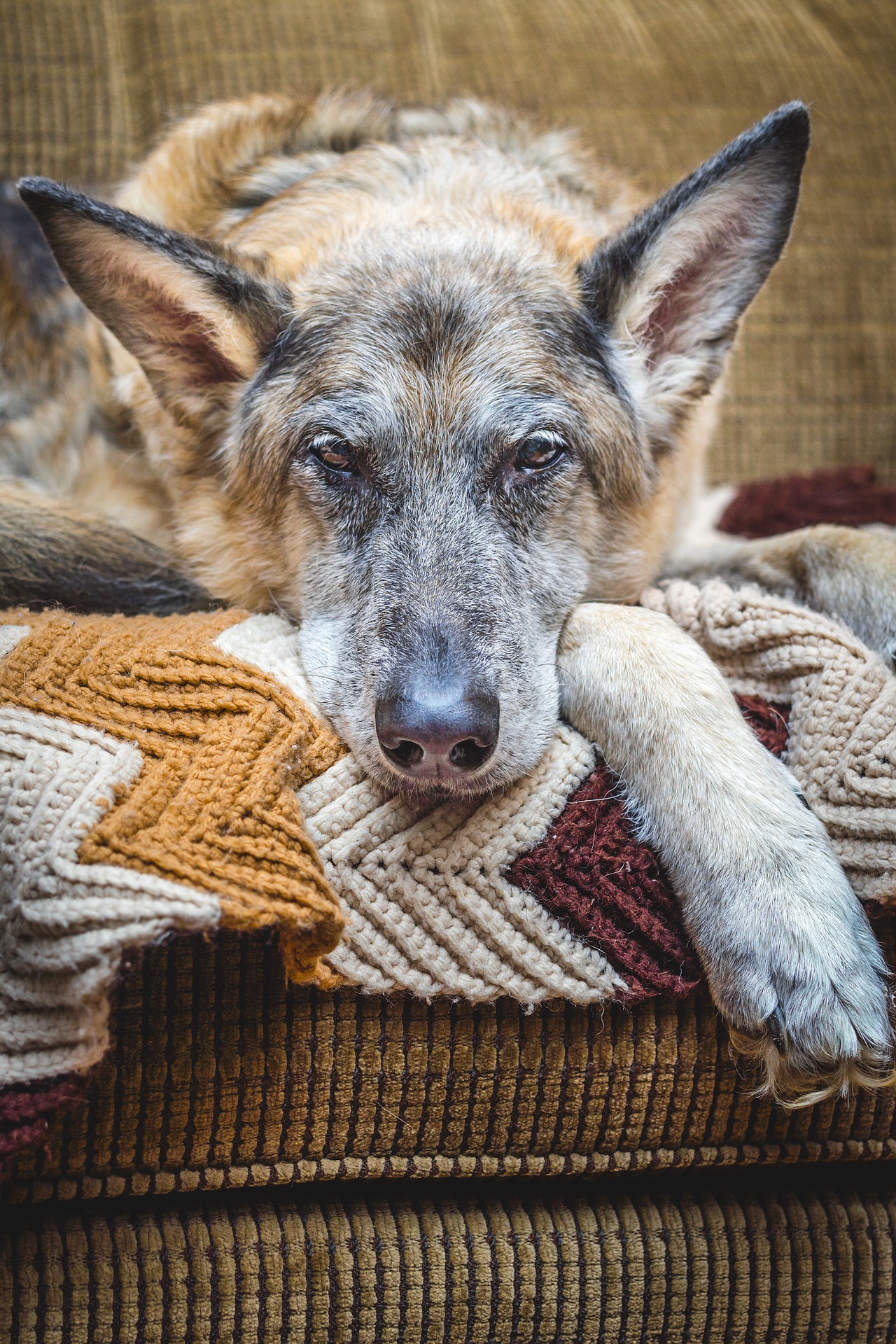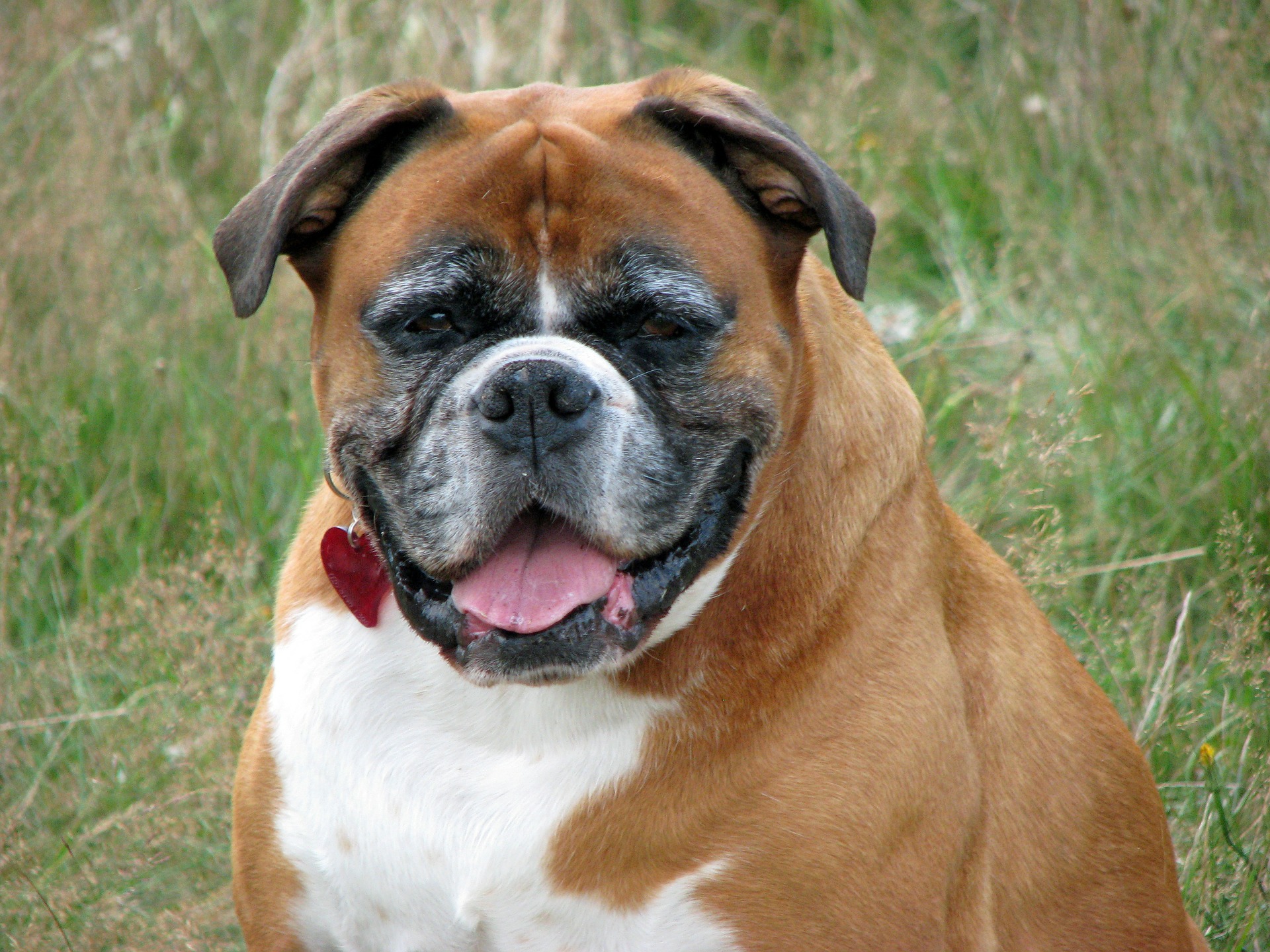Everybody loves a puppy; and it's hard not to want one (or two, or three) once you lay eyes on all of the puppies up for adoption at the animal shelter.
 Although a puppy will bring your family between 10-15 years of joy and companionship, there are many reasons to adopt an adult dog - but it isn't for everyone. As the owner of a "new" older dog, you will need to pay extra attention to diet, fitness and vet check-ups more than with a young pup. But, there are numerous reasons to adopt an older dog.
Although a puppy will bring your family between 10-15 years of joy and companionship, there are many reasons to adopt an adult dog - but it isn't for everyone. As the owner of a "new" older dog, you will need to pay extra attention to diet, fitness and vet check-ups more than with a young pup. But, there are numerous reasons to adopt an older dog.
Older dogs do not require much training (no need for potty-training!). Older dogs are also low-key and won't tear-up the house like a younger dog. You won't need to worry about teething or claw markings on any of the furniture. They are content with socializing with other animals and being a best friend for their owner.
Elder dogs need love, too - perhaps more than younger dogs - and it's time to get them out of dog shelters and into loving homes. Each year, approximately 3.3 million dogs are taken into animal shelters and 670,000 of these shelter dogs are euthanized because individuals do not want an 'older dog.' If these statistics break your heart, then adopting a senior dog may be the right choice for you.
Healthcare for aging dogs is necessary; and these dogs will require more routine visits to the veterinarian. As the dog ages, pet owners will need to take dogs to the vet about once per month. Learn about medical conditions and health concerns before bringing home your older dog so you know how to properly care for that type of domestic breed. Here are some common ailments in senior dogs that you should know about:
| Arthritis | Gum Disease |
| Diabetes | Blindness |
| Dementia | Loss of Hearing |
| Hypothyroidism | Heart Disease |
| Kidney Disease | Cancer |
Consider investing in pet insurance, in case your dog is faced with any medical issues that require immediate action.
Outdoor exercise for senior dogs is vital for maintaining strong bones and healthy joints. Younger dogs require at least 30 minutes of daily activity; but for senior dogs, they need at least one hour per day of exercise. Not only do interactive dogs become lethargic with stiff muscles; but they can potentially become obese; this is why weight management is a must for older dogs. According to the Association for Pet Obesity Prevention, roughly 53 percent of dogs in the U.S. are overweight or obese.
 For dogs with limited mobility, walking or running in high grass or sand may be challenging, even painful. There are many ways to interact with dogs at home in the fenced-in backyard or outdoors that can help you exercise and bond with your pet in the process including:
For dogs with limited mobility, walking or running in high grass or sand may be challenging, even painful. There are many ways to interact with dogs at home in the fenced-in backyard or outdoors that can help you exercise and bond with your pet in the process including:
- Running/Walking with your animal;
- Swimming;
- Playing "tag" or "catch;"
- Playing Tug-of-War
- Play games with dog treats as a reward;
- Visiting the dog park.
Adult dogs need strict nutrition and diet plans. Even if you don't know what dog food was fed to the dog before you adopted him/her, you now have the opportunity to feed your dog the right dog food recommended for that dog breed. As with humans, the right food will keep your dog energetic and healthy leading to more active dogs and reduces the risk for dog obesity.
Because August is Senior Pets Month, Deerbusters encourages potential pet adopters to bring home a senior dog.
